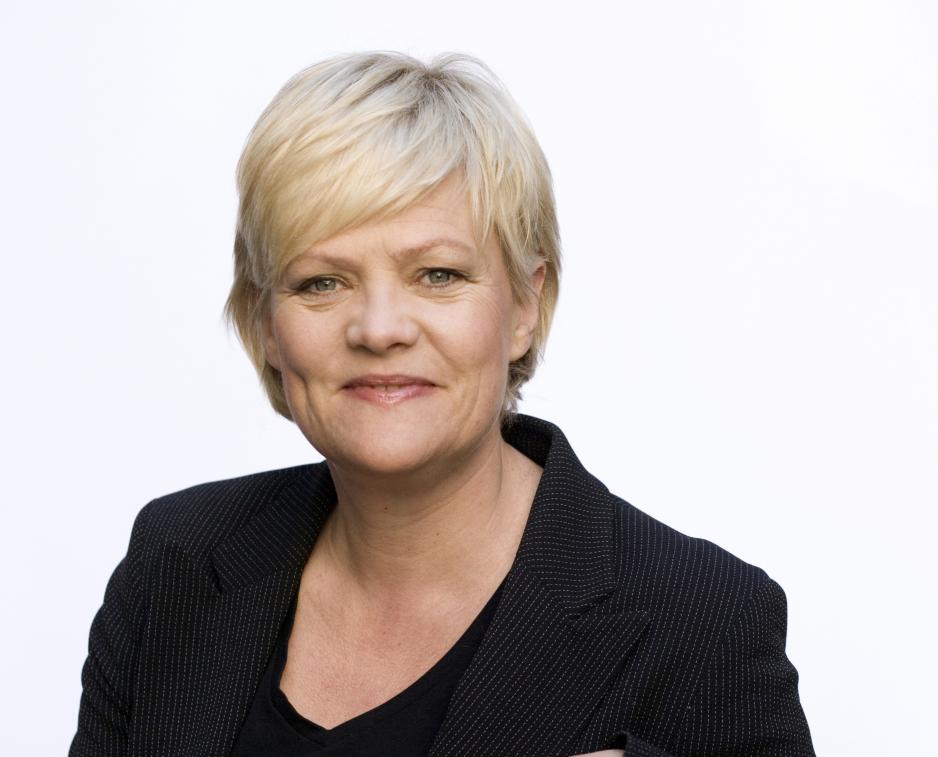Norway's former Finance Minister Concerned about Climate Change and Arctic Security

Only interdisciplinary research can tackle the comprehensive problems of climate change and consequently provide scientific support for decision- and policymakers, says Kristin Halvorsen, former Minister of Finance, and now Director of CICERO.
Kristin Halvorsen, Director of CICERO, Center for International Climate and Environmental Research in Oslo, is the former leader of the Socialist Left Party in Norway (1997-2012). She has also served as Minister of Finance and Minister of Education from 2005 to 2009, and 2009 to 2013, respectively.
Kristin will highlight the consequences
In an interview with The Arctic Institute (TAI), who is partnering with High North News, Halvorsen delivered one essential and undeniable message: the global climate is changing and its negative effects on the Arctic region increase alarmingly.
TAI assists the High North Center in organizing the High North Dialogue conference, to be held in Bodø March 17-19, 2015. Halvorsen is one of the speakers that will be attending:
- We have natural scientists and social scientists and we work on research on climate issues from different angles. The reason why I am at the conference and my role there is that I am going to highlight the consequences of climate change in the Arctic, which is closely connected both to business and to security. We have a lot of information about this area. It is very vulnerable and the IPCC synthesis report tells us that since 1875 the Arctic has warmed at a rate of 1.36 degrees Celsius per century and that is approximately twice as fast as the global average, Kristin Says.
Closely connected to security issues
- All the climate scenarios in the IPCC report shows that there will be dramatic reductions in the Arctic sea ice, the same applies when it comes to near-surface permafrost and the global glacial volume is also projected to significantly decrease. There will be similar increases in the global mean sea level by 2100, anything in between 0.25 and 0.8 meter, and finally the Arctic as a region will continue to warm more rapidly than the global mean, Halvorsen says, before adding:
- And that means of course that the climate change in the Arctic is far more dramatic than anywhere else in the world and closely connected to security issues and of course it affects all sectors.
Consequently, Halvorsen hopes that future discussions on matters of Arctic security will first and foremost concern the climate aspect of security.
One of the concepts that are often referred to with regard to the future of the Arctic is sustainable development. Kristin explicitly emphasized that in order to not end up with an empty concept of sustainable development, it is necessary to actually live up its very meaning. In that regard, she stressed current discussions in Norway on the most recent decision by the Norwegian government to open the south-eastern Barents Sea to oil and gas explorations.
The need for knowledge
According to Kristin, the main task of climate research is contributing with knowledge to that particular debate. Only interdisciplinary research can tackle the comprehensive problems of climate change and consequently provide scientific support for decision- and policymakers, she says.
Halvorsen, who has been the Direcor of CICERO since May, further highlighted the positive bilateral relationship between Norway and Russia in the Arctic, which – in her opinion - is currently not affected by the Ukrainian unrest and the related problematic relationship between the EU and Russia.
The full interview with Kristin Halvorsen is available here, as a podcast:
TAI is conducting a series of podcast interviews with prominent speakers attending the conference, and the interview with Kristin Halvorsen is TAI’s second podcast for the High North Dialogue 2015.
The first podcast is an interview with Michael Byers, Research Chair in Global Politics and International Law, University of British Columbia, Canada. Listen to it here:
